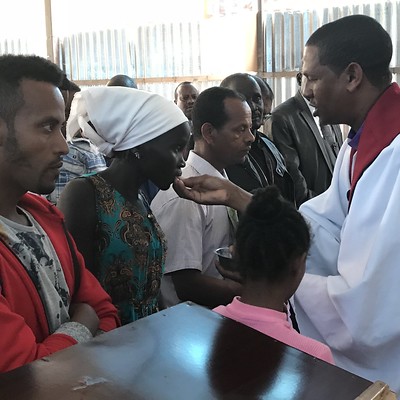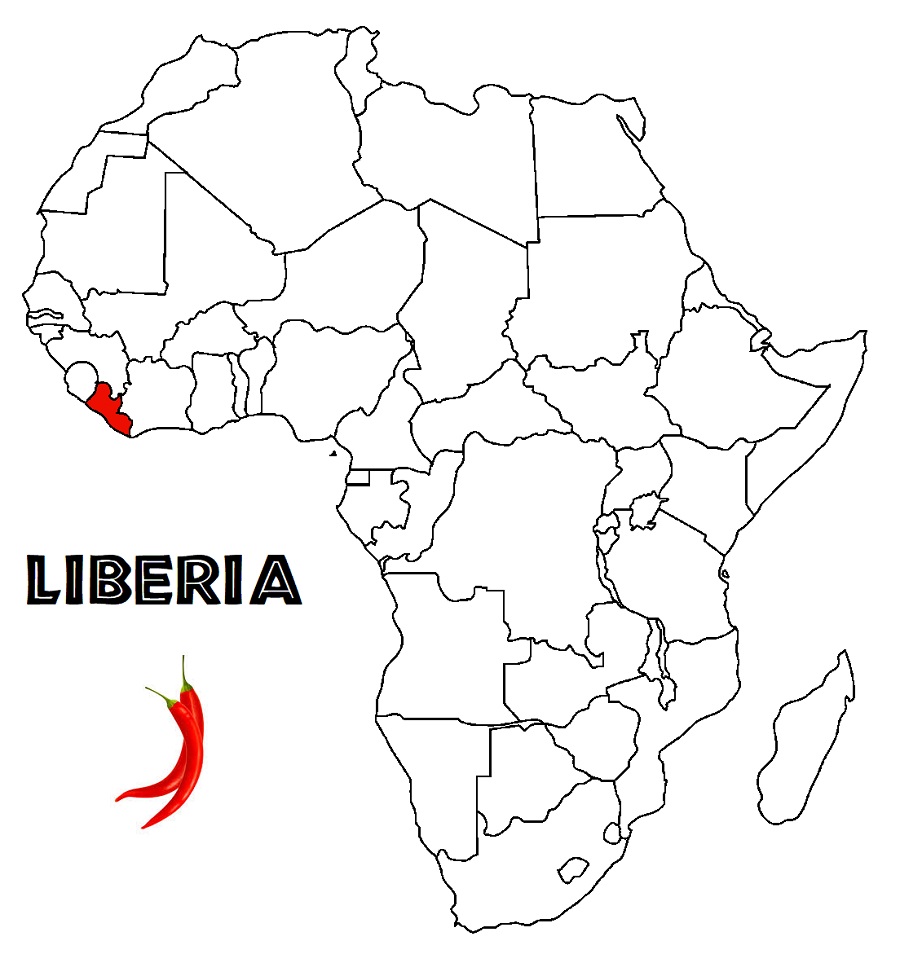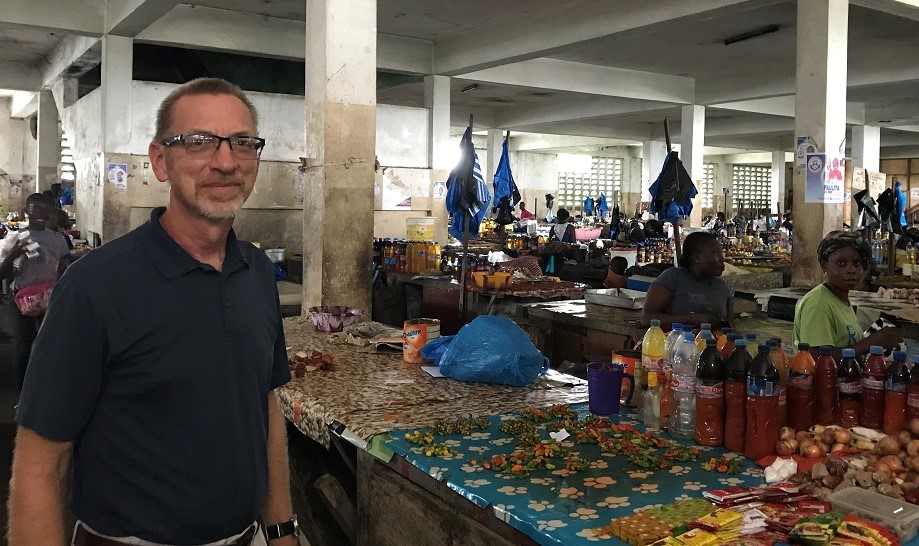Ancient Country, New Faith
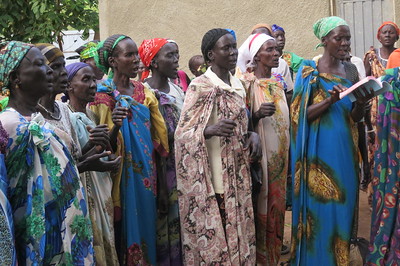
Ethiopia is one of Africa’s historic countries
with rich long-standing influence of Judaism and Christianity. It is widely
accepted that the Queen of Sheba mentioned in the Bible had brought Judaism back
with her to Ethiopia. Furthermore, it is believed the Ethiopian Eunuch who met
Philip (Acts 8) brought the true Gospel to the Ethiopia of those days, and that
Jewish merchants who were also followers of Christ later strengthened the
Christian movement in Ethiopia. Coptic Christianity became the state religion
in 330 AD and was later named the Ethiopian Orthodox Tewahido Church (EOTC)
Since Coptic Christianity became the state religion of Ethiopia, government leaders have bestowed favored status to the church. For example, the government granted one-third of the land in Ethiopia to the EOTC. The EOTC has in return supported government leaders by anointing kings and approving their coronation. Similar to what happened in the Roman Catholic Church, Ethiopian government leaders wanted to exert influence over the church, especially King Zar’a Yacob who introduced many teachings and practices contrary to what the Bible teaches. Over time the truth of Christian faith was compromised and the preaching of the Gospel was forgotten.
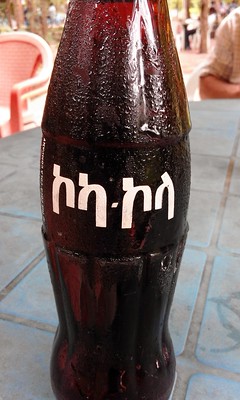
Prior to the time of Dr. Martin Luther there
were individuals who attempted to reform the EOTC from within. In the 15th
century the monk Abba Estifanos advocated the teaching of salvation by grace
alone through faith and condemned the veneration of saints. In the 17th
century the theologian and philospher Zer’a Yacob (not to be confused with the
aforementioned king), who rejected church tradition in favor of Scriptural
authority. This proves that God wanted the reform of His Church and raised men
for this purpose. The EOTC however resisted their efforts and persecuted them, often
to the point of death.
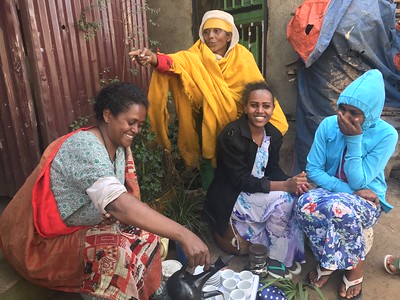
In the late 19th century, Lutheran
missionaries from Northern Europe and America first arrived in Ethiopia. When
the EOTC resisted their efforts to reform the church and persecuted the EOTC
priests who were the first converts to Lutheranism, the Swedish, German and
American Lutherans agreed to establish a new church. It’s name is the Ethiopian
Evangelical Church Mekane Yesus (EECMY). “Mekane Yesus” means “Dwelling Place
of Jesus.” In 1959, the EECMY became a legally registered national church.
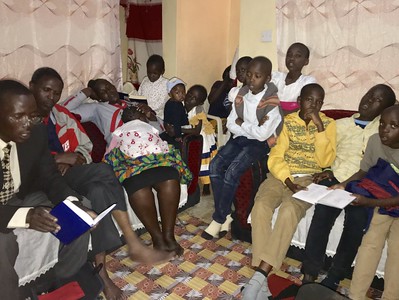
Rev. Dr. Kebede Getachew Yigezu became a
Christian in the EECMY at the age of 15 in 1987 and had been serving as a youth
leader, choir member, solo singer, lay preacher and later as theologian for a
total of 25 years. After being involved in various voluntary services for 18
years in the EECMY, Kebede studied theology at Mekane Yesus Seminary and
continued serving in the EECMY. In 2007, Kebede joined Concordia Seminary in
Saint Louis, Missouri, and received advanced theological training. While there,
his were eyes opened to confessional Lutheran theology and Kebede ascertained
that the WELS understanding and practice of the doctrine of fellowship is more
in line with the Bible’s teaching than the EECMY’s understanding of fellowship.
Kebede left the EECMY for doctrinal reasons to
remain faithful to confessional evangelical Lutheran theology of the Law and
Gospel and the truth of the Scriptures. In compliance with the Ethiopian
government’s requirements Kebede and 56 founding members registered The
Lutheran Church of Ethiopia (LCE) as a confessional Lutheran church body in
2013. The LCE also founded Maor Lutheran Theological Seminary (MLTS) as a Christ-centered,
Bible-based and Reformation-driven confessional Lutheran theological seminary,
which is authorized to offer bachelors and masters degrees and also doctorate
programs. More background information about the church and seminary are found
at https://lcemtc.weebly.com/college.html
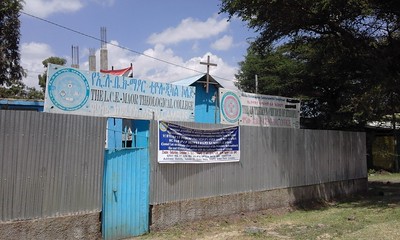
Soon after the establishment of the church and
seminary in 2013, Kebede was ordained in the LCE and reached out to WELS with
the purpose of establishing fellowship. In 2014 and 2015 the LCE was visited by
Professor Edward Allen Sorum and Professor Kenneth Cherney of Wisconsin
Lutheran Seminary, Rev. Peter Bur-Chairman of the Global South Sudanese
Outreach, Rev. Paul Nitz-delegate of the WELS Board of World Mission, and Rev.
Davison Mutentami-CELC Africa Region President.
After several years of talks with WELS
representatives, the LCE and WELS declared fellowship in 2017. WELS has been
collaborating with the LCE on the work of training church workers by sending
professors for short-term intensive teaching trips, and by providing funding to
purchase property and to complete the construction of a five floor
multi-purpose building where the LCE operates her Gospel ministry and
theological education programs.
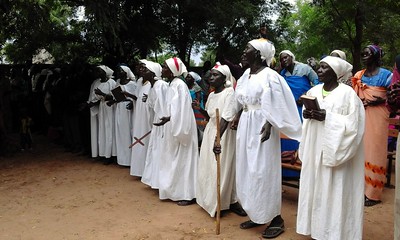
The LCE is a small church body bringing the Gospel truth to light
amongst more than the one hundred million people of Ethiopia. Like Luther, Kebede
and the members of the LCE are standing against many opponents of the Gospel
truth. It is not an easy path to follow but by the grace of God the latest
statistics show:
- Baptized national members = 421
- Organized congregations = one very active
congregation in Bishoftu and four active preaching centers (Adama, Addis Ababa,
Wukro and Dukem)
- National pastors = one
- National evangelists = four (volunteers and
active witnesses in life and ministry)
- Organized congregations = one very active
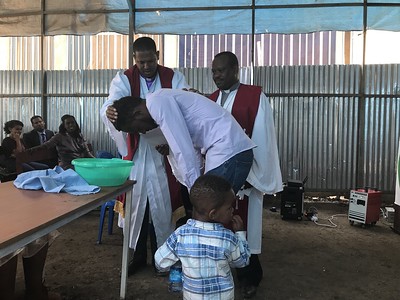
One of the greatest blessings that have come
from the declaration of fellowship between LCE and WELS is our partnership in the Gospel of our Lord and Savior Jesus Christ,
which is based on our unity of faith, love and purpose. In view of
this, we rejoice at the many opportunities God is giving us to make this unity
visible. The LCE and MLTS enjoy the wonderful blessing of fellowship with
like-minded brothers and sisters in the WELS and CELC member churches, who
share their beliefs and gladly pray on their behalf to our heavenly Father. The
Lord is blessing the humble beginnings of the LCE. We praise God for giving the
members of the LCE the endurance to run their race in Him and to pass the baton
of the Gospel truth to the next generation of Christians.
